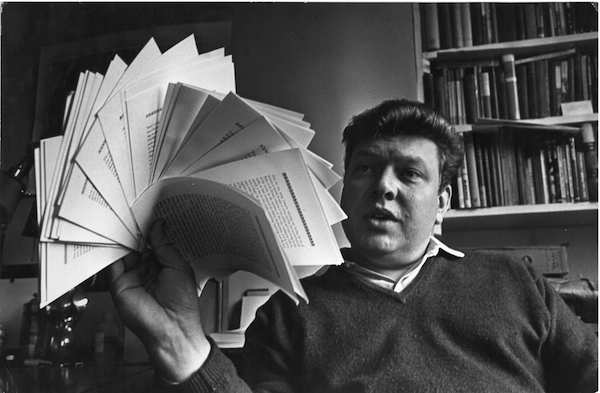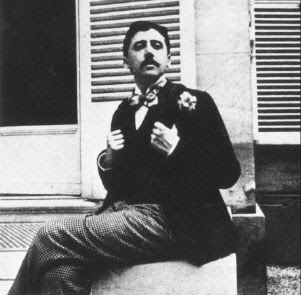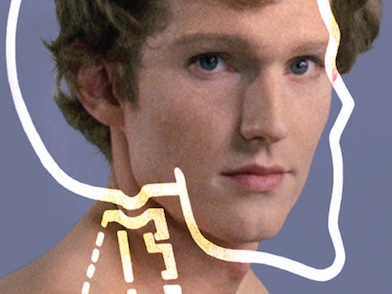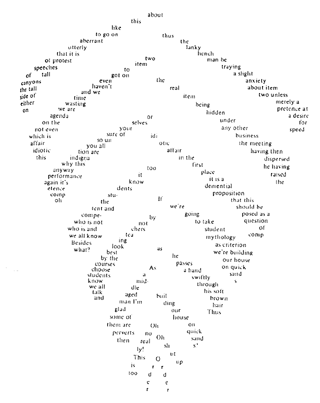“Surely no reader will wish me to invent anything further” : On B.S. Johnson’s Christie Malry’s Own Double-Entry

I’m not sure you could come up with a better name for an experimental writer than B.S. Johnson: it sounds like someone both regal and a joke, which for the English writer of this name, who walked a strange line between outsider artist and one at the cusp of avant-garde, it could hardly be more fitting. B.S. Johnson was decades ahead of his own time, both in the fuck-all way he approached the act of narrative, and the very outline of his life. His was a career that would not begin to find its traction until long after his death, and for my money, still not to the level he deserves.
From the beginning, it was clear that Johnson wanted little to do with the bullshit tropes of how a book is known to work. Raised by a working class family and spending his early years working as a bank clerk, he eventually taught himself Latin and left the workforce for college, then began writing as an assault on what he critically referred to as the “neo-Dickensian” output of those who would become his literary peers. READ MORE >
December 28th, 2016 / 12:10 pm
The collected films of B S Johnson are finally getting a video release
Entitled You’re Human Like the Rest of Them. Both DVD and Blu-Ray formats (Region 2 / PAL). Comes out on 15 April. Includes:
- You’re Human Like the Rest of Them (1967, 17 mins): multi-award-winning tale of a teacher confronting his own mortality [click here & here for more info]
- Paradigm (1968, 9 mins): William Hoyland gives a performance of supreme virtuosity in this arresting experimental film
- The Unfortunates (1969, 15 mins, DVD only): Johnson brings aspects of his book to life in this short BBC TV film
- Up Yours Too Guillaume Apollinaire! (1969, 2 mins): humorous animated take on the calligrams of the famous poet and eroticist
- Unfair! (1970, 8 mins): provocative agitprop piece with Bill Owen
- March! (1970, 13 mins): documentary made for the ACTT union
- Poem (1971, 1 min): poignant short set to the words of Samuel Beckett
- B. S. Johnson on Dr. Samuel Johnson (1972, 26 mins): a learned and full-bodied appreciation of the great writer
- Not Counting the Savages (1972, 29 mins, DVD only): Mike Newell s adaptation of Johnson’s intense play, made for BBC TV’s Thirty Minute Theatre
- Fat Man on a Beach (1974, 39 mins): part documentary, part creative exploration, this was a highlight of 1970s TV programming
This should be enough to make anyone’s Fat Tuesday.
& if you haven’t read B S Johnson, then what can I say but you’re missing out.
Bonus movie review: I watched the 2000 movie adaptation of Christie Malry’s Own Double-Entry, one of my all-time favorite novels. I’m sorry to report that it was awful.
R.I.P. Christine Brooke-Rose
I just heard that Christine Brooke-Rose passed away.
I first came across her work thanks to Brian McHale’s Postmodernist Fiction (1987), where he wrote about her 1975 novel Thru.
At the time, I was deeply into concrete poetry, in particular novelists who used concrete poetry techniques (Kenneth Patchen, B.S. Johnson, Ann Quin). So I was hooked. I picked up the 1986 Christine Brooke-Rose Omnibus, which contains Thru as well as its three “companion” novels: Out (1964), Such (1966), and Between (1968). All of them are decidedly unusual; like Johnson and Quin, Brooke-Rose was heavily inspired by the French New Novel of Alain Robbe-Grillet, Marguerite Duras, and Nathalie Sarraute. (She translated Robbe-Grillet’s In the Labyrinth.) Like all of those authors, Brooke-Rose was a brilliant maker of contemporary fiction who deserves to be more widely read.
Hypothesis: Collaboration and Alienation
 There is a split in experimental fiction, it would seem, which is hardly a split: a duality which is hardly dual. Articulating it, in addition, will not add to or subtract from what I’m provisionally calling “experimental fiction.” I am not going out of my way to break open or unmask a binary which has, till now, subsisted in relative silence. The following is a brief and incomplete diagnosis–neither positive nor negative, or else both at once. Most importantly, perhaps, these are not two distinct regimes (again, a split which is hardly, or is not, a split). Nor should this be taken as a statement of fact, but as a condition which I’ve begun, more and more, to see in what I read.
There is a split in experimental fiction, it would seem, which is hardly a split: a duality which is hardly dual. Articulating it, in addition, will not add to or subtract from what I’m provisionally calling “experimental fiction.” I am not going out of my way to break open or unmask a binary which has, till now, subsisted in relative silence. The following is a brief and incomplete diagnosis–neither positive nor negative, or else both at once. Most importantly, perhaps, these are not two distinct regimes (again, a split which is hardly, or is not, a split). Nor should this be taken as a statement of fact, but as a condition which I’ve begun, more and more, to see in what I read.



